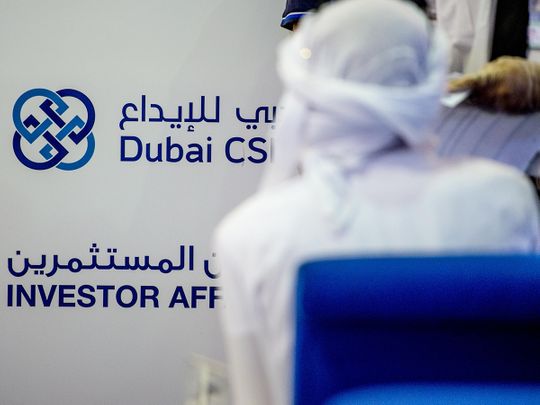
A top performer on UAE stock markets in recent times has been Bank of Sharjah, which has quite a turnaround story to relate. In November, the stock rallied by 28 per cent to Dh0.68 from Dh0.53.
The 52-week high is Dh0.83, which was on January 5, while the 52 week low was the Dh0.50 on November 4. The Dh1.43 billion market capitalised entity did not see any of its shares transacted in August, September and October, but suddenly saw 8.62 million shares changing hands in November.
And this is the highest number of shares transacted in a month in more than a year. Well, experienced market participants would readily acknowledge that a rising share price accompanied by increasing trade volume is a good omen.
Troubles in Lebanon
Bank of Sharjah's recent problems were due to the sovereign debt crisis in Lebanon, and as a result, it had to take haircuts on that exposure. The bank got exposed to the crisis through its Lebanese subsidiary, Emirates Lebanon Bank (ELBank).
According to the latest financials, the bank generates 87 per cent of its revenue from the UAE and the rest from outside, mostly from Lebanon. The crisis in Lebanon has forced the bank to make provisions of Dh809 million in the last 12 months. A substantial sum when we consider the fact that provisions where only Dh100 million in 2017.
Nevertheless, there aresigns of a turnaround.
Making those adjustments
Bank of Sharjah has already complied with Banque du Liban's directive asking all Lebanese banks to raise equity by 20 per cent. The conservative nature of Basel regulations requires that future credit losses will have to be accounted for.
This has resulted in the Expected Credit Loss (ECL) figures rising sharply. The Beirut explosion of 2020 also forced the bank to make higher provisions. The bank has also reached an agreement with Lebanese regulators to amortize loans over a period of five years.
Nonetheless, the worst seems to be behind the bank. The total risk capital has risen to Dh3,407 million, the highest in a year, with the total capital ratio at 11.38 per cent. During the third quarter, revenues rose 136 per cent year-on-year while net profit was at 110 million, giving it a net margin of 33.7 per cent.
- Vijay Valecha is Chief Investment Officer at Century Financial.









